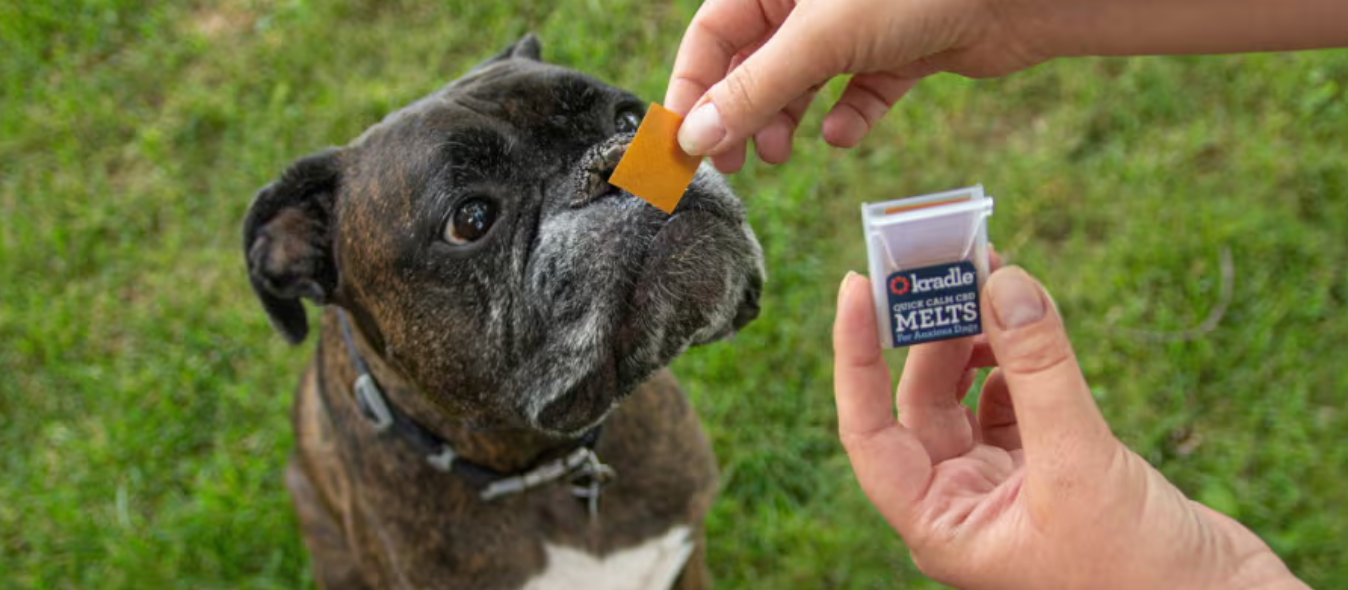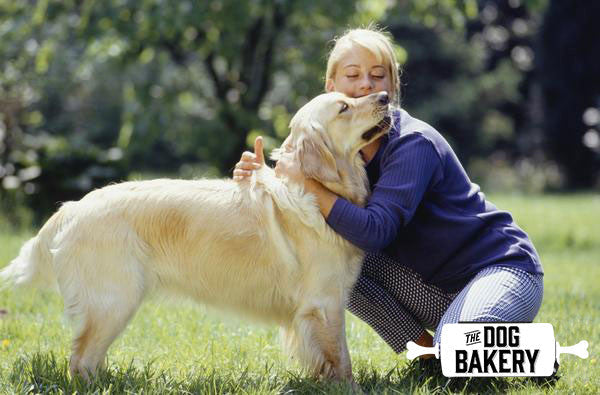Can Dogs Eat Pretzels as a Treat?

Pretzels are the perfect middle ground between a chip and a cracker. Twists, sticks, bites, peanut butter-filled, chocolate-covered, and caramel-dipped, pretzels come in tons of unique shapes and flavors. Feeling like a savory treat before dinner? Grab a giant soft pretzel and go to town on a dish of nacho cheese sauce!
Okay, okay, you get it, we love pretzels, but are these snacks an appropriate treat for your dog?
Before you share your human treats with your pup, it’s important to learn more about their nutritional needs and the ingredients in your snacks. In this guide, we’re covering everything you need to know about dogs and pretzels, plus answers to common questions about the subject.
Are Pretzels Safe for Dogs?

Yes, pretzels are safe for dogs as long as they are free from toxic ingredients.
The most important ingredient to look out for is the artificial sweetener xylitol. Most commonly found in fudge and yogurt-covered pretzels, it’s still a good idea to check regular pretzels for this toxic additive. Even a small amount can be lethal to your dog, so it’s very important to completely avoid giving any to them.
If your pretzels are xylitol-free, one or two will be perfectly safe for your dog. However, they’re not good for them, and we don’t recommend getting in the habit of sharing salty human snacks with your dog.
Nutritional Value of Pretzels
Pretzels have zero nutritional value for dogs, and could actually be bad for your pup’s health.
Pretzels are first and foremost high in complex carbs, which aren’t necessary for your dog’s diet and can raise glucose levels. While some carbs are good for your dog, they should be getting this from their regular diet.
Secondly, pretzels are typically high in salt. Dogs, like humans, need sodium for cellular function, but they need very little compared to us. Pretzels are way too salty for dogs and can cause excessive thirst and dehydration.
Some pretzels are also high in saturated fats, which can contribute to high cholesterol, heart disease, and high blood pressure.
Can Dogs Eat Pretzels FAQ

So we’ve decided that pretzels aren’t good for dogs, but will eating a few pretzels hurt your pup? What if they get a flavored pretzel or a chocolate-covered one?
Will one pretzel hurt my dog?
No, one pretzel will NOT hurt your dog! If your dog snags a pretzel or two—or even three—they will be completely fine. The occasional pretzel is completely safe, as long as it doesn’t have added ingredients like chocolate or xylitol.
Can dogs eat pretzels with salt?
Yes, but they shouldn’t. Salted pretzels have a lot of sodium, more than your dog needs in their diet. One or two won’t hurt your pup, but don’t make it a habit of treating your dog to salted foods.
Can dogs eat pretzels with peanut butter?
Maybe. Like regular pretzels, peanut butter pretzels are high in sodium and generally not good for your dog. However, they shouldn’t be harmful unless they contain xylitol.
Some peanut butter brands add xylitol (sometimes called birch sugar) to their recipes as a sugar-free sweetener. Unfortunately, xylitol is highly toxic to dogs and can be fatal. Read your peanut butter pretzel packaging with great care to see if it contains this potentially lethal ingredient.
Can dogs eat soft pretzels?

Yes, but they shouldn’t. Soft pretzels are essentially the same as hard pretzels but with a shorter baking process and slightly different recipes. High in sodium and carbohydrates, they’re not a good choice for your dog. That said, a little won’t hurt your pup.
Can dogs eat pretzel chips?
Yes, but they shouldn’t. Dogs shouldn’t eat pretzel chips for the same reason they shouldn’t eat regular pretzels—too much sodium and high-sugar carbohydrates.
Can dogs eat sourdough pretzels?

Yes, but they shouldn’t. While it won’t hurt your dog to eat one or two sourdough pretzels, they’re not a healthy treat for your dog.
Can dogs eat white fudge-covered pretzels?
No! White fudge-covered pretzels often contain artificial sweeteners like xylitol and are high in added sugars that aren’t good for your dog.
Can dogs eat yogurt-covered pretzels?
No! Many yogurt-covered pretzel recipes contain xylitol and could make your dog extremely sick.
Can dogs eat gluten-free pretzels?
Maybe. Be sure to check the label on your pretzels to see if they contain any ingredients that could be harmful to your dog. In all likelihood, one or two gluten-free pretzels will be completely safe for your pup but are not a recommended treat.
Can dogs eat honey mustard pretzels?
No! Mustard is toxic to dogs, and honey mustard pretzels also contain other toxic ingredients like ground garlic, onion, and other added spices.
Can dogs eat pretzel Goldfish?
Yes, but they shouldn’t. Goldfish pretzel crackers pose the same general problems for dogs as regular pretzels: they’re high-salt, high-carb, and not an appropriate dog treat.
Can dogs eat pretzels without salt?
Yes, but they shouldn’t. Pretzels without salt are possibly slightly better for dogs than salted pretzels, but that doesn’t mean you should be feeding them to your dog. Pretzels have zero nutritional value for your dog, so stick to dog treats specifically formulated for their needs.
Also, did you know beef kidney is a canine superfood? Check this article to see how to serve it!






